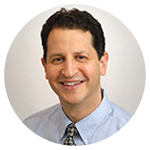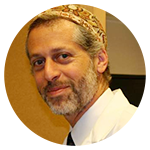Eleven Faculty Promoted to Professor
Congratulations to the following BUSM faculty who have been promoted to the rank of Professor:
 |
Daniel Alford, Medicine/General Internal Medicine, is a renowned clinician educator and scholar in addiction medicine and safe opioid prescribing for pain. For the past 15 years he directed the NIDA-funded Chief Resident Immersion Training (CRIT) in Addiction Medicine that has educated more than 390 chief residents and faculty from 117 residency training programs. In 2013 he developed the Safe and Competent Opioid Prescribing Education (SCOPE of Pain) program, which has trained more than 34,000 clinicians nationally. Dr. Alford has received numerous teaching and service awards, among them from the American Medical Association, White House Office of National Drug Control Policy, American College of Physicians, American Society of Addiction Medicine and Association for Medical Education and Research in Substance Abuse. |
 |
Stephan Anderson, Radiology/Body Imaging, an expert in in-vivo and in-vitro imaging, has forged transdisciplinary collaborations with mechanical engineering in micro/nanotechnology, to develop novel contrast agents and imaging technologies. His has studied diffuse liver disease in ex-vivo specimens and small animal models, in addition to developing and validating imaging techniques in diffuse liver disease and in trauma. Dr. Anderson is the PI or Co-PI on four grants(National Science Foundation, National Institutes of Health, GE Healthcare and Philips Healthcare). He is the author or co-author of 47 peer-reviewed publications, 26 review articles, a book and seven book chapters. |
 |
Tarik Haydar, Anatomy & Neurobiology, is a neuroscientist well recognized for his cutting-edge research in brain development in Down’s syndrome. His work has also explained how neural progenitors generate the variety of neurons within the developing neocortex. He has published 45 papers, as well as invited editorials and critical reviews, in Science, Cell, Neuron, PNAS, Journal of Neuroscience, and Nature Neuroscience. Dr. Haydar has served on several dozen NIH review committees and recently Chaired the Neural Cell Fate NIH Study Section. He has been continuously funded since his arrival at BU in 2010, serving as the PI on four active grants, including an R01. |
 |
Robin Ingalls, Medicine/Infectious Diseases, is an expert in innate immunity, sexually transmitted diseases and bacterial pathogenesis. Her work is critical to our understanding of a number of human diseases including sepsis, pelvic inflammatory disease and pneumonia. She serves on the Innate Immunity and Host Defense study section for the National Institutes of Health and the VA Infectious Disease Merit panel. Dr. Ingalls has been continually grant funded since 1995. She excels in collaborating with basic scientists to develop innovative, clinically relevant research. |
 |
Virginia R. Litle, Cardiothoracic, is an expert in the management of chest malignancies, in particular esophageal cancer, and in reducing the perioperative risk of venous thromboembolism. She directs the Barrett’s Esophagus Program, the Clinical Research Program in Thoracic Surgery and the Center for Minimally Invasive Esophageal Therapies. Dr. Litle, who has participated in multi-institutional research cooperative groups since 2005, served as PI on an NIH-funded translational research project of microRNA profiling of Barrett’s esophagus and esophageal cancer, and as Co-Investigator on several translational multi-institutional studies. Dr. Litle is a past president of the international Women in Thoracic Surgery, and a member of the American Association for Thoracic Surgery. |
 |
Jennifer I. Luebke, Anatomy and Neurobiology, is a leading expert on the structure and function of neurons in the mammalian cerebral cortex. Vice-Chair of the Department and Director of its graduate program, her research focuses on the normal structure and function of individual cortical pyramidal cells and their alterations in transgenic mouse models of neurological disease and in a rhesus monkey model of normal aging. She has published key papers and review articles on the effects of normal aging, amyloidopathy and tauopathy on the electrophysiological and morphological properties of cortical neurons. Dr. Luebke, who Directs the Laboratory for Cellular Neurobiology, has been continuously funded by federal agencies and private foundations for two decades. She has mentored more than 50 postdoctoral fellows, PhD, MD/PhD and master’s students. |
 |
David McAneny, Surgery/Surgical Oncology, is widely recognized for his work on cost-effective and safe management of surgical patients. He and his team developed I COUGH, a mnemonic for a variety of simple interventions to decrease pulmonary complications after surgery, that has now been adopted in scores of hospitals throughout the United States and in English-speaking countries around the world. His team also developed a protocol within the electronic medical record that drastically reduced the incidence of venous thromboembolism after surgery, which also is being implemented internationally. An outstanding clinical surgeon, with expertise in endocrine surgery and hepatobiliary-pancreas-GI surgery, Dr. McAneny has been included in various Top Doctors publications since 1999. He has received numerous teaching awards, including BUSM’s Stanley L. Robbins Award for Excellence in Teaching, and is the Councilor of BUSM’s chapter of the national honor medical society Alpha Omega Alpha. |
 |
Tuhina Neogi, Medicine/Clinical Epidemiology Research & Training, is an expert in osteoarthritis (OA) and gout. Her work has been continuously supported since she completed her clinical training in 2003 and she has more than 150 peer-reviewed publications. Her first study on pain in OA, published in BMJ, was recognized as the leading clinical research paper of the year at the international OA meeting (OARSI) in 2009. She has contributed to understanding triggers for gout attacks, which has led to changes in treatment guidelines published by the American College of Rheumatology (ACR). She was invited to write the most recent gout clinical reviews in NEJM and Annals of Internal Medicine, and her leadership in the international effort to develop new classification criteria for gout will become the FDA and EMA (European Medicines Agency) standard for gout clinical trials. She is the recipient of numerous awards, including the prestigious ACR Henry Kunkel Young Investigator Award in 2014 for outstanding and promising independent contributions to research in rheumatology. |
 |
Michael Paasche-Orlow, Medicine, General Internal Medicine, is an international leader in the emerging field of health literacy. He has designed eight patient-oriented interactive behavioral informatics programs and helped create and evaluate a range of patient empowerment and decision support tools. He was a member of the Boston Medical Center investigative team that designed and tested an 11-part strategy to improve care transitions, called Project RED (Re-Engineered Discharge), which has emerged as one of the leading evidence-based strategies to improve care transitions. Dr. Paasche-Orlow has coordinated statewide learning networks for health providers in New Hampshire, Kentucky and Minnesota. He is the founding Editor-in-Chief for Health Literacy Research and Practice and he has run the Health Literacy Annual Research Conference, the largest international health literacy research conference, for each of the past eight years. He is a member of the Health Literacy Roundtable of the National Academies of Sciences, Engineering, and Medicine. Dr. Paasche-Orlow’s research has appeared in the NEJM, JAMA, BMJ, Annals of Internal Medicine and the American Journal of Public Health. He is currently the PI, Co-PI or subcontract PI on eight active awards. |
 |
Marie-Helene Saint-Hilaire, Neurology, directs the Parkinson Disease and Movement Disorder program, with special focus on clinical research in Parkinson’s and Huntington’s diseases. Her experienced clinical trial and research team has participated in more than 100 clinical studies. Funding support includes the National Institutes of Health, Michael J Fox Foundation, American Parkinson Disease Association (APDA) and industry. Her research interests include new medications and role of neurorehabilitation, neuroprotective treatments and search for biomarkers in Parkinson. Dr. Saint-Hilaire is the site PI for the Michael J Fox Foundation project on biomarkers in Parkinson disease (PPMI). She has published more than 100 articles and book chapters. Since 2003, Dr. Saint-Hilaire has directed the American Parkinson Disease Advanced Center for Parkinson Research, one of only eight funded in the US. She serves on the scientific review committee of the Parkinson Study Group, a prestigious research consortium, and on the APDA National Scientific Advisory Board. She also directs the Movement Disorder Fellowship Program. |
 |
Flora Sam, Medicine, Cardiovascular Medicine, an internationally recognized expert in heart failure with preserved ejection fraction (HFpEF), also known as diastolic heart failure. Dr. Sam was elected to the American Society of Clinical Investigation (ASCI) in 2011, which recognizes outstanding scholarly achievement in biomedical research. Continuously supported by NIH grants since her initial appointment, her translational research program investigates inter-tissue communication in heart failure. She has played a pivotal role in defining important circulating biomarkers in cardiac amyloidosis. She has served as the primary mentor for 40 trainees at the pre- and post-doctoral levels, served on two PhD thesis committees and is on the program faculty for two NIH T-32 grants. |